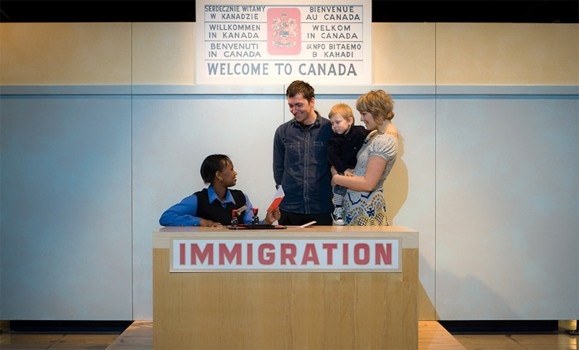When a new student comes to Dal, they’re expected to adopt certain educational values: academic integrity, intellectual honesty, and respect for the opinions and ideas of others, to name a few.
And when it comes to Canadian immigration, both native-born Canadians and newcomers agree: certain “Canadian” values come with the territory, according to a recent nationwide poll conducted by the Pierre Elliott Trudeau Foundation in collaboration with ±«Óătv researchers.
For example, 97 per cent of Canadians polled stressed that adopting gender equality and tolerance of others should be a condition of being accepted into the country – and 96 per cent of immigrants agree.
The questions, drafted by Dal faculty members, the Trudeau Foundation and Environics Research Group Limited, revealed native-born Canadians answers were consistent with those of newcomers – immigrants who want to live in Canada should adopt Canadian values like gender equality, freedom of religion, respect for Canadian culture, tolerance for others, English and/or French fluency, etc.
The poll results were released at a conference held by the Trudeau Foundation in Halifax last month.
The importance of immigration
Howard Ramos, associate professor in the Department of Sociology and Social Anthropology helped draft the survey questions.
Citing David Ley, a professor at UBC who participated in the national conference, he notes that, “Canadians now see immigrants as a solution, not a burden, to our economic woes. Unless the birth rate spikes, there will most likely be a gap in the labour force in the next ten years. Immigrants are needed to offset the shortage of skilled workers.”
According to Dr. Ramos, there are several ways a newcomer can migrate to Canada, but the biggest untold story is the exponential increase in temporary foreign workers – from 100,000 a decade ago to more than 430,000 today.
“Most temporary foreign workers end up working in the service sector,” he says. “But there are also a large number of doctors, engineers, and professors who fall into that category.”
The poll shows that Canadians are split three ways when it comes to accepting temporary foreign workers: 33 per cent say they support the decision to accept more of them, where 35 per cent disapprove and 32 per cent are indifferent. These numbers, according to Dr. Ramos are largely out of sync with government’s policy to increase the number of these migrants.
Gap between policy and opinion
He says that’s not the only policy that doesn’t line up with Canadian attitudes.
“Ninety per cent of Canadians are in favour of immigrant family reunification yet the Harper regime has put a two-year moratorium on sponsoring parents and grandparents,” Dr. Ramos says. “In other words, it’s making it harder for family to be sponsored by Canadians.”
Overall, the poll suggests Canadians are positive about the impact of immigration: by a three-to-one margin, they believe that immigration is making Canada a better place.
“Newcomers are needed to make a diverse and vibrant country and also so our aging population can retire,” explains Dr. Ramos. “To be Canadian is to be an immigrant.”Â

